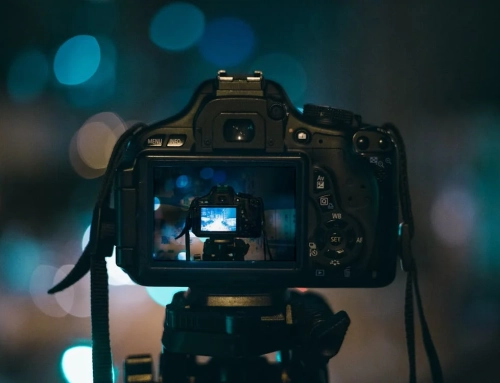We all know that smartphone camera quality is on the rise and there are plenty of people ready and willing to tell you that you can get “professional” quality pictures through your smartphone. However, businesses and brands that end up trying this out often find themselves disappointed by the results. Here is why, even with the latest quality, 10-megapixel cameras on smartphones, professional photography will always win out.
You need professional quality
Simply put, you have to present your brand in the best possible light. Even with more sophisticated cameras in smartphones and equipment to help stabilize them, they frequently have issues that get in the way of the end result. Low light, moving objects, and pictures requiring a zoom will all give a smartphone camera much more trouble. Compared to smartphones, professional cameras have far fewer visible pixels and can take pictures at a much larger resolution, resulting in a higher-quality image.
A shift in the lighting won’t ruin the whole setup
Smartphone cameras come with a lot more options to help them take photos in different environments, but lighting is still an issue they have a lot of trouble with. If you need to take pictures at a conference where lights might be dim, smartphones will take pictures with a lot more complete darkness than necessary. If the light shifts while the photo is being taken, it can ruin a shot completely, too.
Less trial and error
The sensors on a smartphone are, to put it mildly, temperamental. Light isn’t the only thing they have trouble with. Any movement in the phone can result in a photo being unusable. There are stands for smartphones available to help stabilize them, but they don’t work as well as the sophisticated hardware on a professional camera, and they undermine the portability of smartphone photography in the first place.
Get the whole picture
Smartphones are limited by the laws of physics. They have smaller lenses, which means there are simply some things they cannot do that a real professional camera, operated by a professional photographer, can. For instance, the small lens instantly limits the scope and resolution of any picture, while a change in lenses can provide a variety of different options from a good photographer. Smartphones also have issues with soft focus pictures, which need a larger lens. This creates a shallow depth-of-field, that creates a stronger separation from the main subject and the background. With smartphone cameras, it can all blur together, putting the focus on the wrong part of the picture. So long as smartphone camera lenses can’t change size, this will always be one of the problems with trying to take professional-quality pictures on them.
Stay in control
Smartphones are coming with more tools to help you edit on the go, but these features will always be second best to the kind of bespoke software used by professional photographers. Even the lowest end digital camera provides a lot more control than the highest-end smartphone. Smartphones offer some options on things like white balance, flash, and editing filters. Digital cameras provide those as well as many more options, including shutter speed, aperture, different image formats and much more. If you have a certain look that you want to accomplish in your photos, then professional photographers are much more likely to help you achieve what you’re looking for.
Professional photos are more versatile and valuable
Nowadays, content is king. Content marketing with written content plays a large part in making the best use of your content, but professional photos can be just as, if not more valuable. Great photos make your blog and written content more readable and more likely to be shared through social media. They can serve as brand imagery on social media such as Facebook, Twitter, Instagram etc. They can be used to make brochures, promotional materials, booth imagery and much more, but only if they have the resolution to support those formats. They make your site a lot more likely to be found with search engine optimization and referrals driven by image search queries, but only if the photos themselves are optimized. Smartphone photos can be used for quick social media posts but if you want photos that can be used as the versatile tool they really are, you need a professional photography.
Whether building a website, producing new content, or capturing images from an event, smartphones still have a long way to go before they catch up with professional photography. Smartphones can be useful for catching candid snaps in the everyday, especially for frequent social media posts, but when it comes time to represent the brand, you need professional quality.



